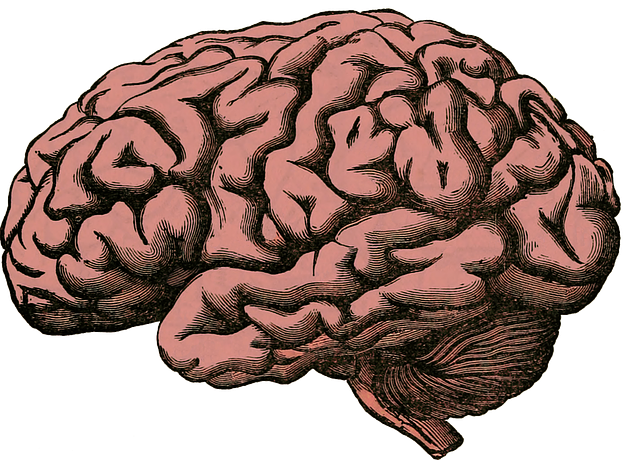Trauma, often overlooked in childhood development, significantly impacts mental wellness and learning. Services like tailored therapy using Mind Over Matter principles and independent medical evaluations (IMEs) are vital. IMEs provide comprehensive assessments to guide personalized interventions, addressing physical and emotional aspects of trauma. Effective strategies include journaling, mindfulness exercises, and guidance techniques for traumatic memories. Early intervention through crisis guidance and tailored treatments leads to improved long-term well-being. Cultural competency training ensures sensitive care for diverse populations, fostering positive outcomes in therapy for young children affected by abuse or neglect.
Trauma support services are vital in ensuring the holistic development of young children. This article delves into the multifaceted approach to healing and growth after traumatic experiences, focusing on key components like understanding trauma’s impact, the therapeutic process, and independent medical evaluations.
While exploring these sections—Understanding Trauma and Its Impact on Young Children, The Role of Therapy for Healing and Growth, and Independent Medical Evaluations: A Crucial Component—we emphasize the importance of accessible, quality care for vulnerable children.
- Understanding Trauma and Its Impact on Young Children
- The Role of Therapy for Healing and Growth
- Independent Medical Evaluations: A Crucial Component
- Ensuring Access and Quality of Care for Vulnerable Children
Understanding Trauma and Its Impact on Young Children

Trauma, often overlooked as a significant issue in childhood development, can have profound and lasting effects on young minds. It’s crucial to understand that trauma isn’t merely an event; it’s a response to an experience that threatens one’s sense of safety, security, and well-being. For young children, these experiences may include abuse, neglect, domestic violence, or severe loss. The impact can be extensive, affecting their ability to form secure attachments, regulate emotions, and learn effectively. This is where trauma support services become vital, offering a lifeline for these vulnerable individuals.
One such service is therapy tailored for young children, which employs Mind Over Matter principles to foster inner strength development. These therapeutic approaches are designed to help children process and make sense of their experiences in a safe environment. Additionally, independent medical evaluations play a crucial role in identifying trauma’s physiological effects, allowing for comprehensive care that addresses both the mind and body. Through these interventions, children can begin the emotional healing processes necessary for growth and resilience.
The Role of Therapy for Healing and Growth

Trauma can profoundly impact young children, affecting their mental wellness and overall development. Here, therapy plays a pivotal role in facilitating healing and growth. Through specialized therapeutic approaches tailored to children’s unique needs, professionals create safe spaces for them to express their experiences, process emotions, and develop healthy coping mechanisms. Independent medical evaluations often guide this process, offering insights into each child’s specific trauma and its effects.
One effective strategy within therapy is encouraging mental wellness journaling and mindfulness exercises. These activities promote self-awareness, emotional regulation, and a sense of control, contributing to anxiety relief and boosting confidence. Additionally, therapists can employ guidance techniques to help children navigate traumatic memories, fostering resilience and empowering them to rebuild their lives.
Independent Medical Evaluations: A Crucial Component

Independent Medical Evaluations (IMEs) play a pivotal role in trauma support services, especially when it comes to therapy for young children. These comprehensive assessments are crucial in understanding a child’s physical and emotional state following traumatic events. By engaging qualified healthcare professionals, IMEs provide an unbiased evaluation of the child’s symptoms, enabling tailored interventions. This is particularly significant in promoting emotional well-being, as early identification of trauma-related issues can lead to effective treatment plans.
For instance, an IME might uncover specific triggers or behaviors indicative of anxiety relief needs, guiding therapists towards evidence-based practices. Moreover, these evaluations ensure that the therapy for young children is age-appropriate and culturally sensitive, fostering a supportive environment essential for mental wellness. The insights gained from IMEs can also inform the production of mental wellness podcast series designed to educate families on coping mechanisms and emotional resilience, ultimately enriching the overall support system.
Ensuring Access and Quality of Care for Vulnerable Children

Ensuring access to quality care for vulnerable children is paramount when it comes to trauma support services. Many young ones experience trauma due to abuse, neglect, or other adverse experiences, requiring specialized therapy and evaluation to heal effectively. Providing timely intervention through crisis intervention guidance can significantly impact a child’s long-term well-being. Independent medical evaluations play a crucial role in diagnosing and understanding the extent of a child’s traumatic experiences, guiding tailored treatment plans.
Healthcare provider cultural competency training is essential to delivering sensitive care to diverse populations. By embracing this training, professionals can create safer spaces for children from various backgrounds to share their stories and engage in therapeutic processes. It fosters positive thinking by promoting an environment where every child feels understood, respected, and supported on their journey towards recovery.
Trauma support services play a vital role in ensuring the well-being of young children. By understanding trauma’s impact, utilizing therapy as a healing tool, and incorporating independent medical evaluations, we can provide comprehensive care to vulnerable kids. These integrated approaches aim to enhance access and quality of care, fostering growth and resilience in young minds. Therapy for young children and robust independent medical evaluations are key components in this crucial landscape.









